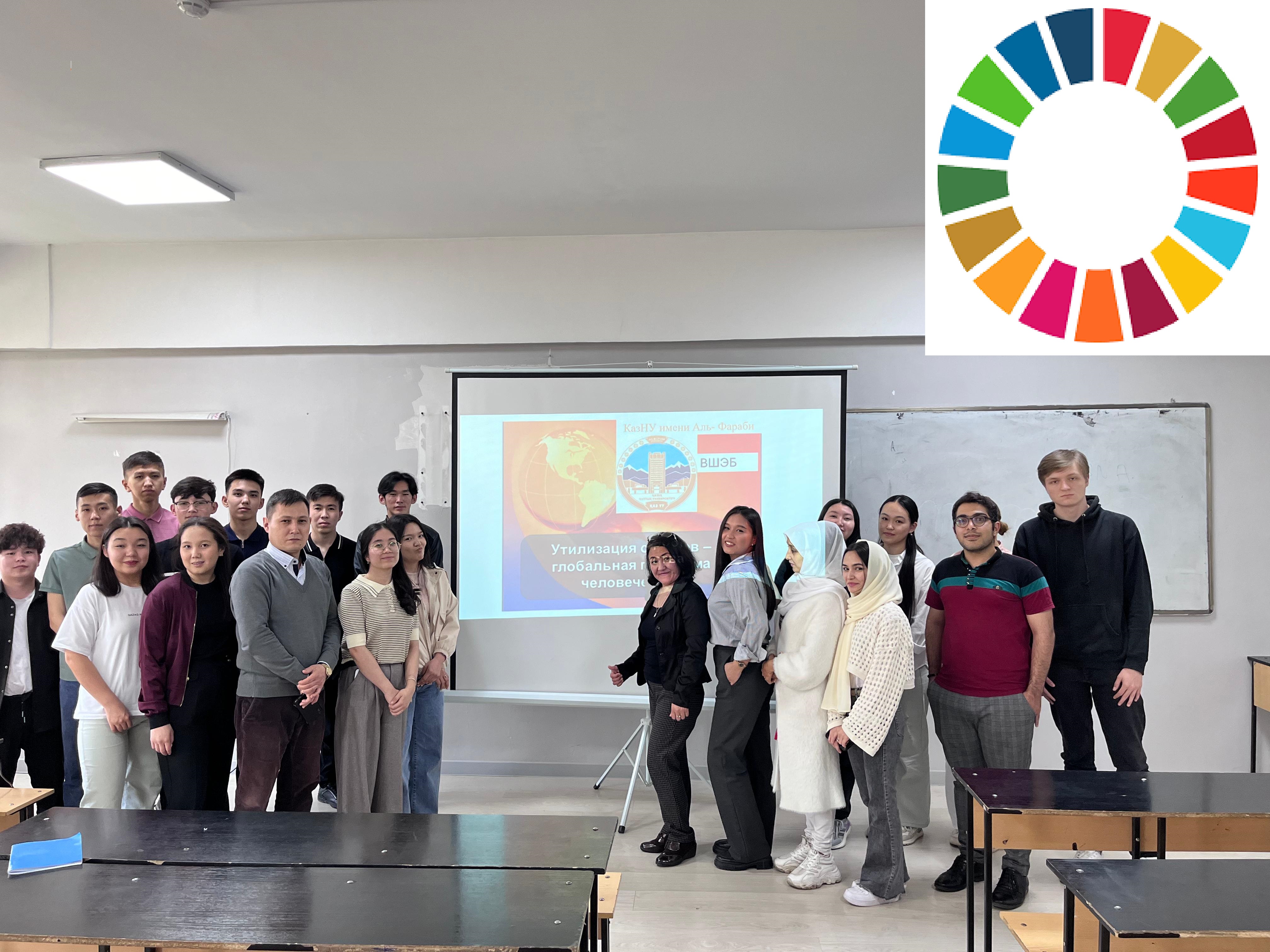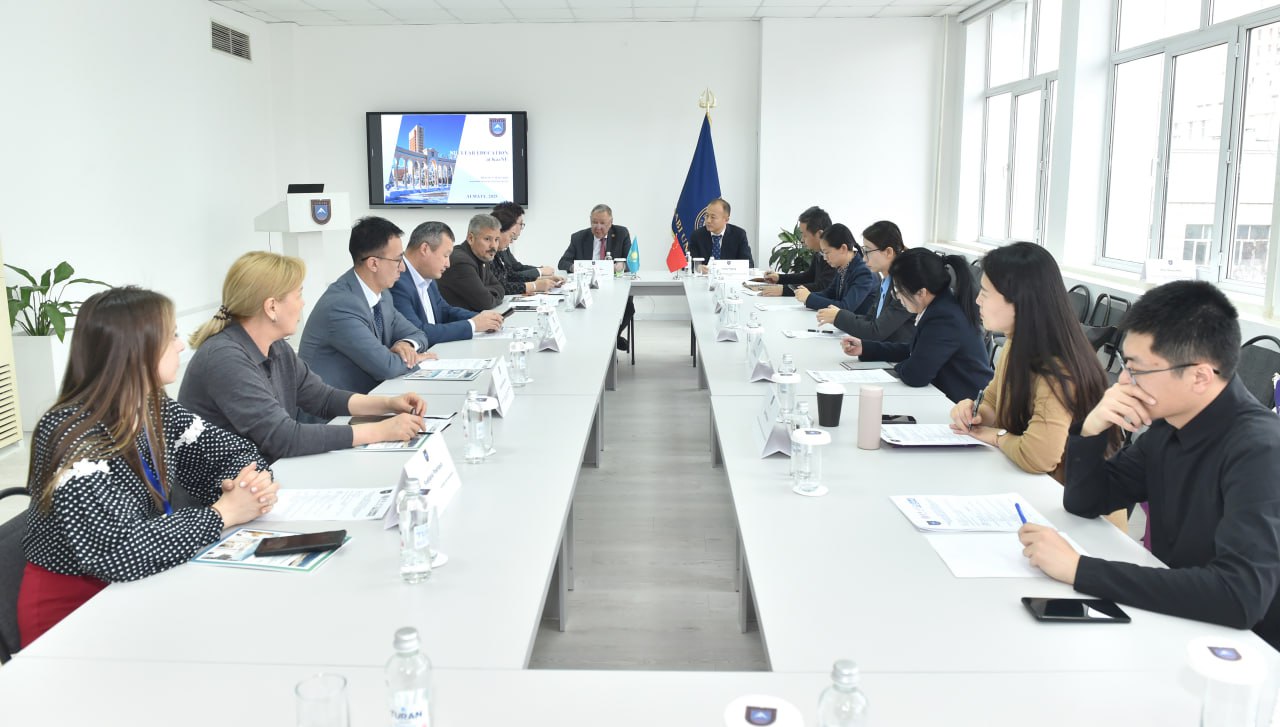- Main
- News
- Recycling of household waste is one of the directions of the ecological component of the Sustainable development of the state
Recycling of household waste is one of the directions of the ecological component of the Sustainable development of the state

In accordance with the goals of the SDGs, senior teachers of the Department of Economics G.K. Ilyashova and E.M. Zholamanov held an open curatorial hour on April 25, 2024 on the topic "Recycling of household waste is one of the directions of the environmental component of sustainable development of the state" in order to discuss and inform students about the need to sort garbage at the initial stage of its formation.
Various waste products from human activities and garbage have always existed and will exist in the future. The problem of waste disposal remains relevant both at the global and national levels.
According to the reporting data, the total volume of accumulated solid waste in Kazakhstan is more than 100 million tons. At the same time, 4.5 million tons of solid waste are generated in Kazakhstan annually. Almost the entire volume of solid waste is exported to landfills and landfills, of which there are more than 4 thousand in the republic, excluding natural disasters. Of these, there are about 600 that meet environmental requirements and sanitary standards, which is about 15% of their total number. Only 20% of solid household waste is recycled in Kazakhstan today. Conscious sorting of garbage is a sure way to increase recycling culture.
The participants of the event - students of the 1st, 2nd and 3rd courses of the specialty "6B04109 – Digital Economy" learned a lot about the threat of environmental pollution and international experience in the processing of solid waste.
During the discussion, the students came to the conclusion that it is necessary to develop a technology for the separate collection, processing and disposal of production and consumption waste, as in developed countries. The country's settlements will be clean only when the proper handling of solid household waste becomes a generally accepted norm for the population. To solve this issue, it is necessary to reach out to the public and the population of the country as much as possible, so that the latter realize the importance of the problem of solid waste disposal and show interest in solving this problem.
Other news
